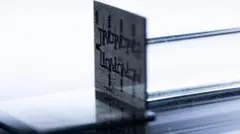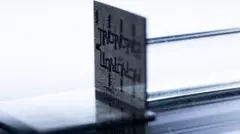Amazon Joins Quantum Race with Innovative ‘Cat Qubit’ Chip
Amazon has become the third tech giant in recent months to announce a breakthrough in quantum computing, unveiling a prototype chip called Ocelot that utilizes ‘cat qubit’ technology. This development aims to address one of the significant challenges in quantum computing: achieving error-free performance.
The Ocelot chip, featuring five cat qubits, is designed to reduce the costs associated with correcting quantum errors by up to 90% compared to current methods. This advancement is crucial for scaling up to more powerful quantum machines with built-in error correction.

Quantum computers have the potential to solve complex problems that are currently unsolvable by classical computers, leading to breakthroughs in fields such as medicine, materials science, and logistics. However, their sensitivity to environmental noise makes them prone to errors. Cat qubits, inspired by Schrödinger’s thought experiment, are engineered to be more error-resistant.
Oskar Painter from Amazon Web Services (AWS) Center for Quantum Computing notes that recent progress in quantum computing has brought the timeline for practical applications forward. “Five years ago, I would have said maybe 20 or 30 years,” he said, “but this timeline’s come in quite a bit.”
The development of more accurate quantum computers could significantly benefit Amazon’s retail business by optimizing global logistics. “A company like Amazon, you make a one percent improvement in that and you’re talking large dollars right?” Painter explained.
While Amazon’s achievement is seen as an important step forward, experts remain cautious about the timeline for commercially viable quantum computers. Michael Cuthbert, director of the UK’s National Quantum Computing Centre, emphasizes that error correction is a vital step but notes that scaling the technology efficiently remains a challenge.
Amazon’s announcement follows similar breakthroughs by Microsoft and Google, sparking debate about whether this flurry of announcements represents significant research progress or strategic PR. Heather West, a research manager at the International Data Corporation, describes Amazon’s results as an “advancement” rather than a breakthrough, highlighting the industry’s shift towards practical applications and error correction.
As the quantum computing landscape evolves, Amazon’s Ocelot chip represents a significant step towards harnessing the power of quantum technology for real-world applications.


